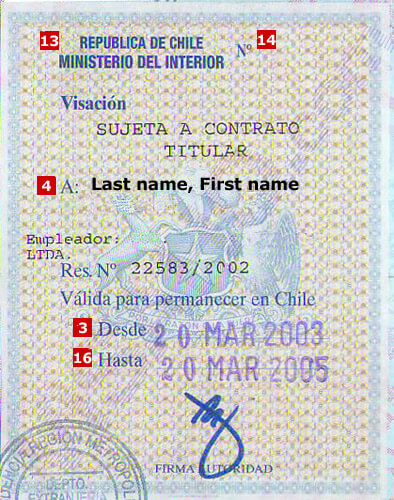Chile Embassy list in New Caledonia
Need help?Chat with us
Why Trip Registration at the Chile Embassy is Important
Registering your trip with the Chile embassy is a crucial step for any traveler heading to Chile. It enhances personal safety, ensures effective communication, and provides necessary support in emergencies. In unpredictable situations such as natural disasters like earthquakes, the embassy can swiftly alert registered travelers to seek shelter or evacuate. During times of political unrest, registered citizens can receive real-time updates and guidance on safe areas. Furthermore, in medical emergencies, the embassy plays a vital role in facilitating timely assistance or arranging medical evacuations. Overall, being registered creates a direct line of communication between travelers and the embassy, ensuring that you receive the help you need when it matters most.
Chile Embassy FAQs
Can the Chile embassy assist in legal issues abroad?
Yes, the embassy can provide guidance and assistance for legal issues abroad, including referrals to local lawyers and information on your rights as a Chilean citizen.What should I do if I lose my Chile passport in New Caledonia?
If you lose your passport, report the loss to local authorities and then contact the Chile embassy for immediate assistance in obtaining a replacement passport.Does the Chile embassy offer notary services?
Yes, the embassy provides notary services for various legal documents, including powers of attorney and affidavits.How can I contact the Chile embassy in New Caledonia?
You can contact the embassy via phone or email, and visit their official website for updated contact information and operating hours.
Services Provided by Chile Embassies in New Caledonia
Passport Services
- Issuance of new passports
- Renewal of existing passports
- Lost passport replacement
Visa Issuance for Foreign Nationals
- Tourist visa applications
- Work and study visa applications
Assistance in Legal or Medical Emergencies
- Help with legal issues and referrals to local attorneys
- Coordination for medical emergencies and hospital referrals
Travel Alerts and Safety Updates
- Issuing travel advisories and safety information
- Updates on local laws and regulations
Support for Nationals Detained Abroad
- Assistance for Chilean citizens detained in local custody
- Legal support and consular visits
Summarized Diplomatic Presence
Chile maintains a significant diplomatic presence in New Caledonia, primarily through its embassy situated in the capital, Nouméa. The embassy serves as a critical link between Chile and New Caledonia, reinforcing diplomatic relations and cooperation across various fields. Its primary functions include providing consular services, facilitating bilateral trade, and promoting cultural exchange. With a focus on enhancing mutual interests and collaboration, the embassy plays a vital role in strengthening ties and fostering international relations in the region.
